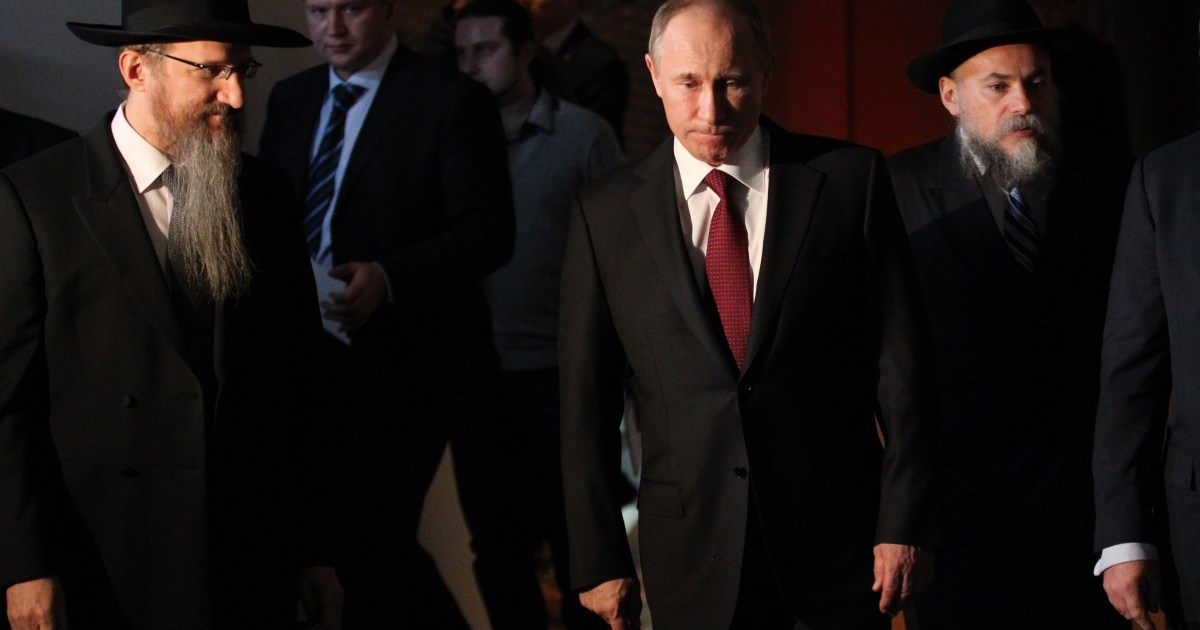The Russian Ministry of Justice has requested the dissolution of the Jewish Agency for Migration in Moscow, a Russian court said Thursday, amid tension over the conflict in Ukraine.
"The court has received an administrative complaint from the main department of the Ministry of Justice demanding the dissolution of the branch of the Jewish Immigration Agency that supports ties with the Jews of the diaspora," Russian news agencies quoted Ekaterina Buratsova, a spokeswoman for the "Basmani Court" in Moscow.
The Russian "Interfax" agency indicated that "this request came due to the agency's violations of Russian law," without giving further details.
According to the Basmani Criminal Court in Moscow, a preliminary hearing in the case will be held on July 28, based on the lawsuit it received from the Ministry of Justice regarding the liquidation of the organization.
Israeli Immigration and Absorption Minister Nachman Shai said the move was a "pathetic" attempt to punish the agency for Tel Aviv's stance on Russia's war on Ukraine.
יהודי רוסיה לא יהיו בני ערובה של המלחמה באוקראינה.
הנסיון להעניש את הסוכנות היהודית בשל עמדתה של ישראל לגבי המלחמה הוא פאתטי ומעליב.
את יהודי רוסיה לא ניתן יהיה לנתק מהקשר ההיסטורי והרגשי למדינת ישראל.
— נחמן שי- Nachman Shai (@DrNachmanShai) July 21, 2022
And the Israeli newspaper "Jerusalem Post" revealed two weeks ago that the Russian authorities had sent instructions to the Jewish Agency to stop all its activities inside the country.
The request to dissolve this branch comes at a time when relations between Israel and Russia have been tense since the beginning of the Russian invasion of Ukraine.
Israel has more than one million citizens of the former Soviet Union.
An Israeli delegation to Moscow
An Israeli delegation is scheduled to go to Russia early next week in an attempt to dissuade Moscow from stopping the Jewish Agency's work in the country.
The delegation includes representatives of the government, the ministries of foreign affairs and the judiciary, and the Israeli government will discuss the diplomatic steps required in this context.
Israeli government sources did not rule out that the Russian move was in response to Israel's position regarding the Russian war on Ukraine and its support for the US administration.
In a statement Thursday, Israeli Prime Minister Yair Lapid confirmed his intention to send a delegation to Russia "to ensure the continuation of the Jewish Agency's activity in Russia."
Lapid stressed that "the Jewish community in Russia is deeply connected to Israel, and its importance emerges in every diplomatic discussion with the Russian leadership."
For his part, the head of the Russian Jewish Congress, Yuri Kanner, said that preventing the agency from entering Russia would not prevent Jews who wish to immigrate to Israel from taking this step.
Kaner told RIA Novosti that closing the agency could "accelerate the exodus of Jews from Russia."
Tension in relationships
Earlier, Ukrainian President Volodymyr Zelensky criticized Israel for not imposing sanctions on Russia like Western countries.
When he was foreign minister, Lapid described the Russian war on Ukraine as aggressive, and criticized what he called the Bucha massacre on the outskirts of Kyiv last April.
Traditionally strong relations with Moscow deteriorated in May after Russian Foreign Minister Sergei Lavrov said Hitler had Jewish ancestry, angering Israel.
Russian branch
The Jewish Agency was founded in 1929, and included among its goals the "return to Israel", and to help Jews living in the "diaspora" to remain Jews, to maintain and strengthen their relationship with the Jewish state.
The Jewish organization "Sukhnot" began its activity in the territory of the Soviet Union in 1989, two years before the official opening of the Israeli embassy in Moscow, and is responsible for a number of educational programs, including the organization of children's camps and "Sunday schools", as well as supervising programs "Returning" the youth to Israel.
At the level of the former Soviet republics, it has representative offices in Russia, Belarus, Ukraine, Moldova, Uzbekistan, Kazakhstan, Azerbaijan and Georgia.
According to the organization's data, more than 21,000 Russian Jews came to Israel last year, and about 30,000 people from Russia and Ukraine so far this year.

